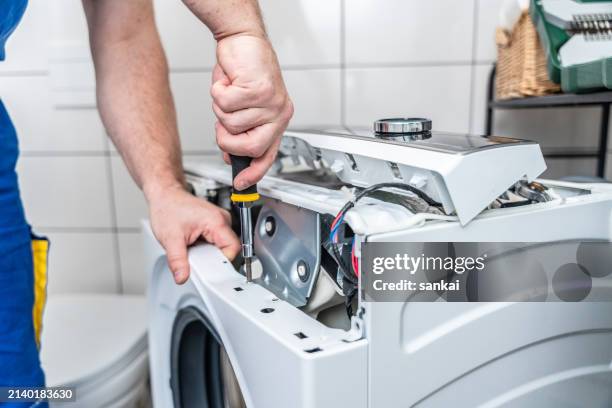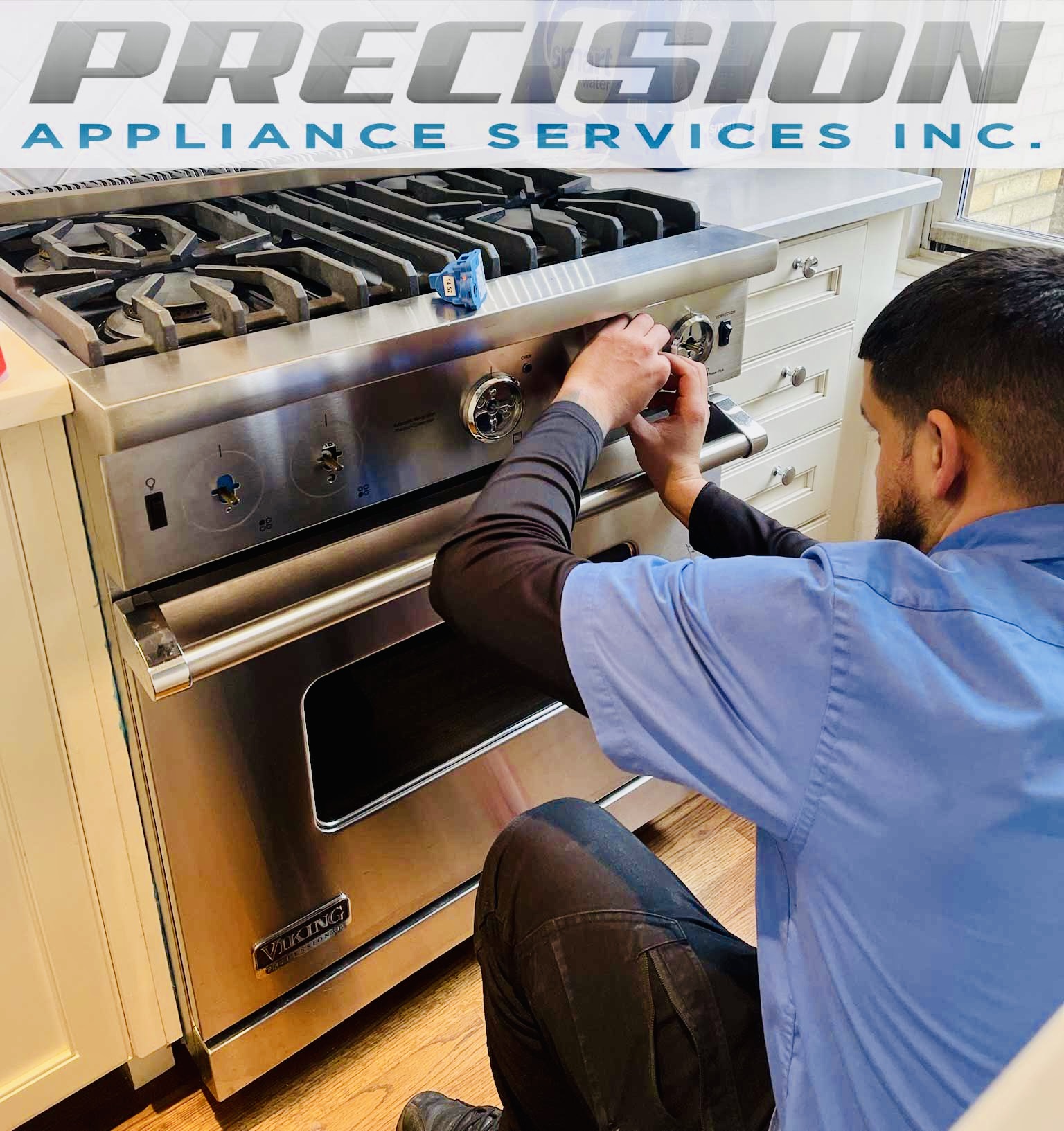DIY Repair Guide – Dryer repair Oro Valley Dependable Refrigeration & Appliance Repair Service
DIY Repair Guide – Dryer repair Oro Valley Dependable Refrigeration & Appliance Repair Service
Blog Article
The Ultimate Overview to Understanding Device Repair at Home
When your refrigerator stops cooling down or your oven refuses to heat, it can feel frustrating. Understanding appliance repair in your home can save you time and money. You'll learn to identify signs and symptoms, utilize important tools, and adhere to a systematic troubleshooting process. However before you begin, there are vital safety preventative measures you need to think about. What are one of the most typical troubles, and exactly how can you repair them? Let's discover the essentials.
Usual Home Appliance Problems and Their Signs and symptoms
When your devices start acting up, it's important to identify the signs at an early stage. Ignoring them can cause larger concerns and costly repair services. As an example, if your refrigerator isn't cooling effectively, you could notice warm places or condensation developing. This can show a failing compressor or a blocked vent.Your dish washer may show issues through dirty meals or uncommon sounds during cycles. If you listen to grinding or clanking, it's time to investigate.A cleaning maker that won't spin or drain can leave you with soaked laundry, recommending a clogged drain or a malfunctioning pump.Lastly, if your stove's temperature level seems off or it takes forever to preheat, you may be dealing with a faulty thermostat. By staying alert to these signs and symptoms, you can address issues before they intensify right into major repair services.
Crucial Devices for Appliance Repair
When you're taking on appliance fixings in the house, having the right tools is vital. Standard hand tools like screwdrivers and pliers will certainly assist you take apart and take care of different home appliances, while electrical screening tools assure you're working securely with electrical wiring. Allow's go over what you need to begin on your repair work journey.
Basic Hand Tools
Having the right devices is crucial for effective appliance repair in the house. Start with a trustworthy screwdriver set, consisting of both flathead and Phillips kinds, as screws prevail in appliance setting up. Pliers are additionally vital; they assist with gripping, turning, and reducing cables or tiny elements. A set of needle-nose pliers can reach tight spots easily. You'll need an excellent adjustable wrench for tightening up or loosening nuts and bolts. An energy blade is handy for cutting with product packaging or insulation. Finally, do not neglect a strong workbench or surface area to safely organize your devices and parts. With these standard hand tools, you'll be well-prepared to tackle most appliance fixings that come your way.
Electric Testing Tools
Along with basic hand devices, electrical testing tools play a necessary duty in device repair service. These tools aid you detect electrical concerns and assurance home appliances work safely. A multimeter is crucial; it determines voltage, present, and resistance, permitting you to identify troubles quickly. A non-contact voltage tester is another essential, letting you identify online cables without making direct call, improving your security. Clamp meters are wonderful for measuring current circulation in cables without disconnecting them, conserving you effort and time. In addition, circuit testers can quickly inspect if electrical outlets are functioning effectively. By making use of these gadgets, you'll streamline your troubleshooting procedure and improve your repair abilities, making appliance upkeep a great deal much easier.
Step-by-Step Guide to Diagnosing Home Appliance Issues
When your appliance acts up, it can be irritating, but identifying the issue does not have to be frustrating. You'll discover to determine common issues and use effective fixing strategies. Let's go through the steps to obtain your appliance back in working order.
Common Home Appliance Problems

Repairing Techniques Explained

Fixing Significant Cooking Area Home Appliances: A Closer Look
Have you ever before questioned just how to deal with usual issues with your kitchen area devices? Fixing significant kitchen appliances like refrigerators, ovens, and dishwashers can be less complicated than you think. Start by determining the issue-- whether it's a fridge not cooling or an oven that won't heat. Usually, a straightforward reset or inspecting the source of power can fix the issue.For fridges, tidy the condenser coils and inspect the door seals. If your stove's not heating, check the heating element and thermostat. Dishwashers might simply require a clean filter or a reset to get them back in activity. Always disconnect the home appliance prior to diving right into repairs to assure your safety.Don' t fail to remember to speak with the customer manual for certain repairing suggestions connected to your version. With a little bit of perseverance and the right devices, you can confidently take on device repair work and conserve money in the procedure!

Troubleshooting Washing Appliances: Tips and Techniques
When your laundry home appliances begin breaking down, it can really feel overwhelming, but troubleshooting them does not need to be a hassle. Begin by inspecting the power supply. Validate the home appliance is connected in and the outlet here is functioning. Next, inspect the door or lid switch; a defective button can protect against the equipment from operating.For washers, if it's not spinning, inspect for unbalanced lots. Rearranging the clothes might fix the concern. If your clothes dryer isn't heating, clean the lint filter and inspect the vent for blockages.Listen for unusual sounds; they can suggest a problem. If your device is leaking, check the pipes for splits or loose links. Document any mistake codes shown on digital displays, as they can assist you in identifying the concern. Ultimately, seek advice from the user guidebook for specific troubleshooting pointers connected to your design.
Security Precautions to Take During Fixes
Before you start any kind of device repairs, it's vital to focus on safety to avoid accidents or injuries. First, unplug the device or switch off the circuit breaker to assure no power reaches it while you work. Use insulated devices to minimize the threat of electric shock. Wear safety goggles and gloves to protect yourself from sharp sides or debris (Dependable Refrigeration & Appliance Repair Service Dryer repair near me).Make certain your office is tidy and well-lit, so you can see what you're doing. Maintain youngsters and pet dogs away from the location to prevent diversions and possible hazards. If you're managing gas appliances, be extra mindful; check for leakages prior to proceeding.Take your time, and don't hurry with repairs. If you really feel uncertain concerning any action, it's better to pause and research than to presume. Following these safety measures will help create a more secure atmosphere for your DIY appliance repair task
When to Call a Specialist for Aid
Just how do you know if it's time to call a professional for device repair work? If you've attempted basic troubleshooting without success, it's a clear indicator. If your appliance still will not begin or reveals unusual sounds after resetting it, don't think twice to look for expert help.When you observe leakages, smoke, or shedding scents, prioritize security and call a pro promptly. These issues can result in more considerable damage or present threats to your home.Also, if your device is under service warranty, calling a specialist is frequently the most effective route. They can guarantee that repairs won't nullify your service warranty, saving you money in the long run.Finally, if you're not sure or unpleasant with complex fixings, it's smart to leave it to the professionals. Remember, tackling complicated concerns without the appropriate know-how can result in costly mistakes. Trust an expert when unsure!
Often Asked Inquiries
Exactly How Can I Stop Home Appliance Problems in the Future?
To protect against appliance troubles in the future, you need to execute regular maintenance, look for damage, tidy filters, and avoid overloading. Remaining positive will aid expand their lifespan and keep them running efficiently.
What Are one of the most Common DIY Device Repair Work Mistakes?
You may ignore security precautions, miss fixing actions, or utilize inaccurate tools when attempting do it yourself device repairs. Hurrying the procedure or neglecting supplier guidelines can cause even more considerable concerns and costly blunders. Stay patient and informed!
Exactly how Do I Know if a Part Requirements Substitute?
You can inform if a component needs replacement by checking for uncommon noises, leaks, or irregular efficiency. If the device struggles to operate correctly or shows noticeable damages, it's most likely time for a replacement.
Can I Make Use Of Generic Parts for Appliance Repair Works?
Yes, you can use common parts for home appliance repair work, yet identify they work - Fixes washers and dryers Oro valley Dependable Appliance Repair. Generic components could conserve you money, yet they can affect performance or long life, so evaluate your options carefully before making a choice
What Service Warranties Cover Device Services?
The majority of home appliance guarantees cover repair work for manufacturing issues, however they often leave out damage from abuse. Examine your guarantee terms meticulously, as some could call for utilizing certified professionals and original components for insurance coverage to remain legitimate.
Report this page